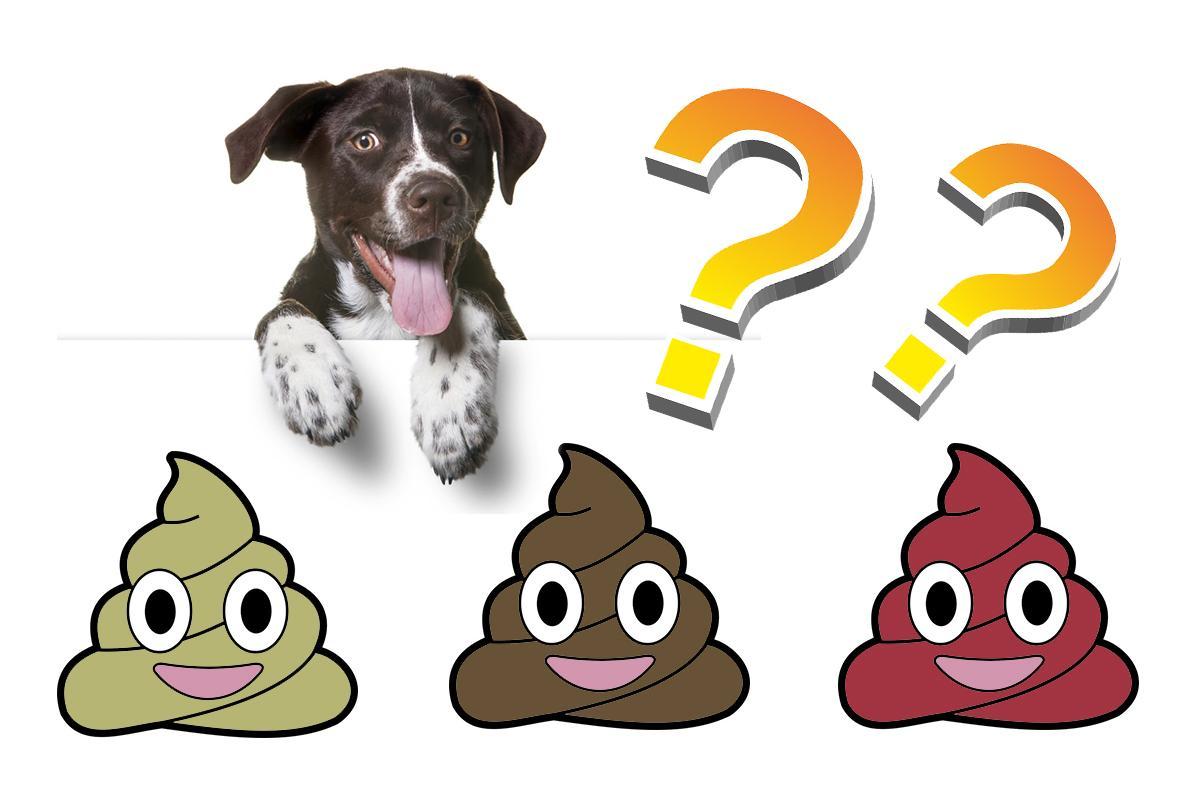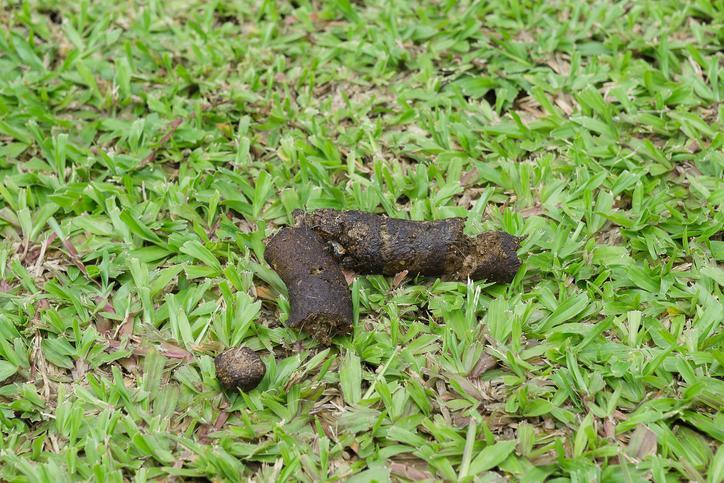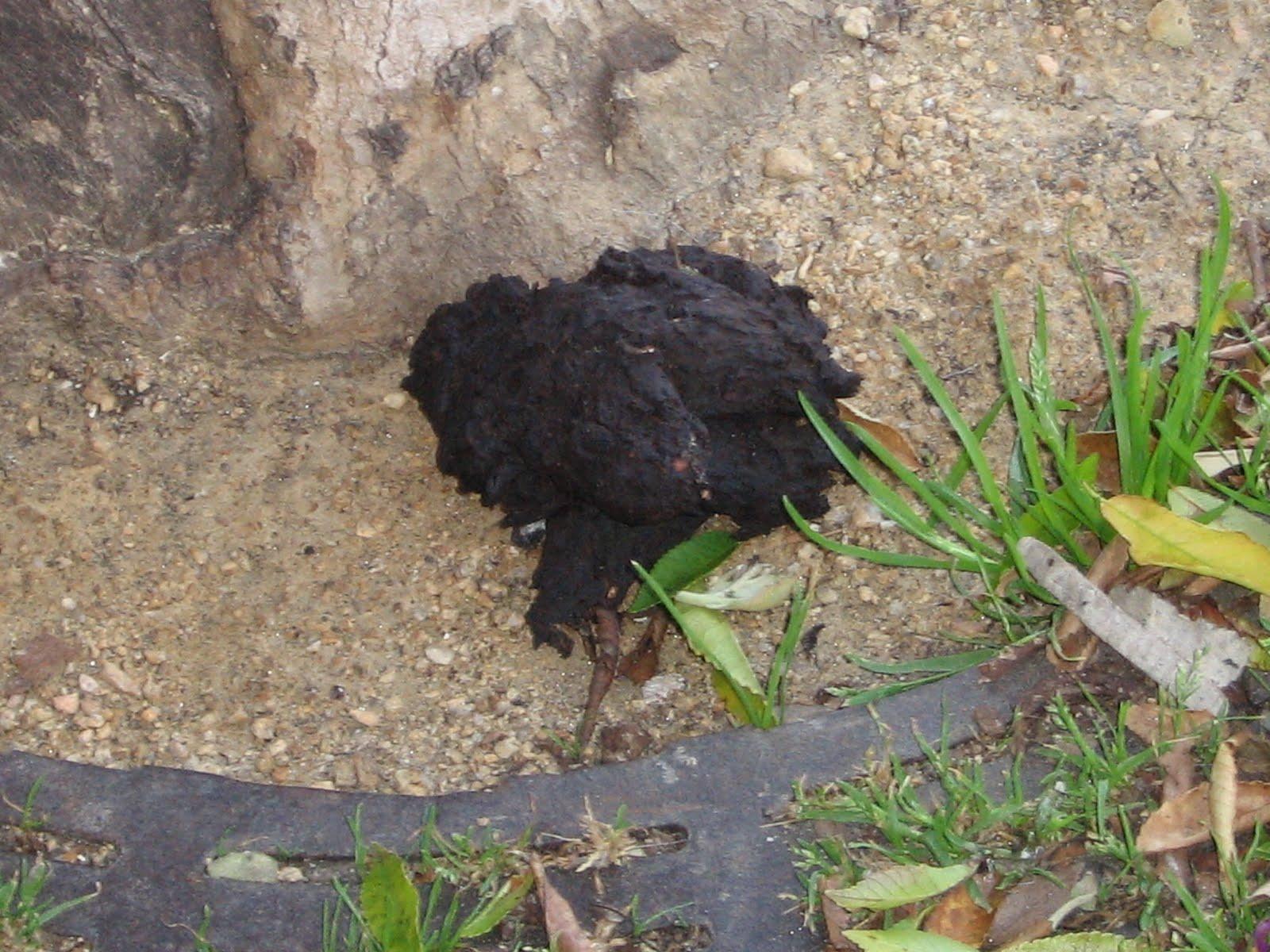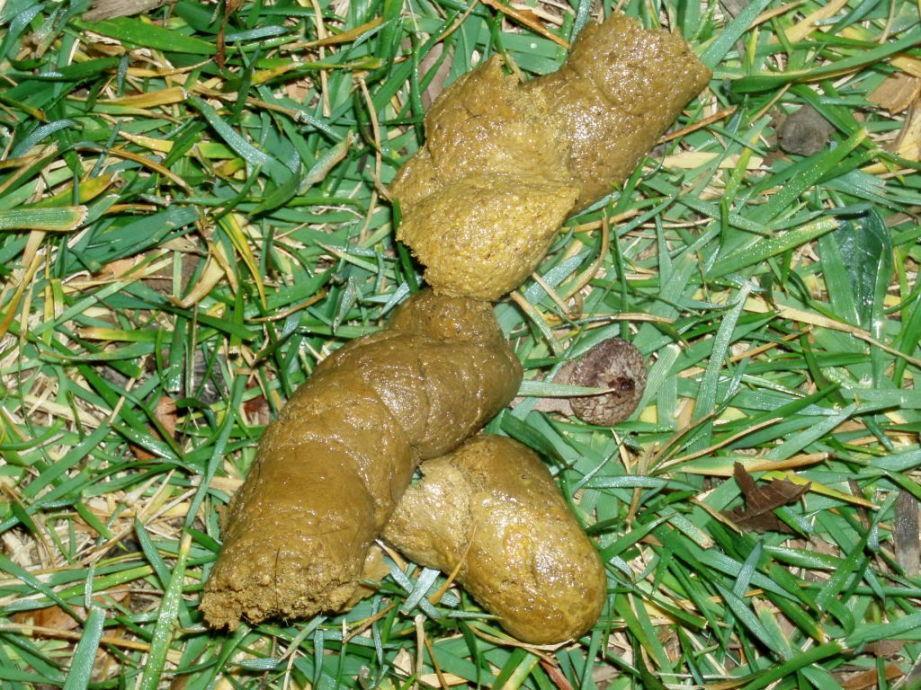Types Of Dog Poop and What They Mean



See files for Dogs
Although it may seem strange, checking and analyzing your dog’s poop is necessary in detecting your dog’s health status and/or any signs of illness. The color, consistency, frequency, quantity or any change in your dog’s feces can help you determine whether your dog is healthy or suffering from a pathology.
This topic may be slightly unpleasant, but it is extremely important that you know what the different types of dog feces are and what your dog’s poop means. Is your dog’s poop normal? Keep reading this AnimalWised article and learn how to analyze your dog’s poop with our dog poop chart with pictures!
Dog poop color chart: normal dog poop
A dog’s owner will be the first person able to detect any changes in a dog's feces. It is important to emphasize that if you notice changes in your dog’s poop, it is not always a sign of something serious. Some changes in dog poop could signify mild issues such a treatable gastrointestinal problems in dogs.
Either way, dogs cannot speak and therefore, as dog owners, it is our responsibility to know how to identify any serious signs of illness apparent through dog poop analysis. Other symptoms and signs which can help us identify health problems in our dogs include changes in urine, poop frequency, behavior and other symptoms of pain. For more, we recommend reading our article where we discuss 5 signs of pain in dogs.
Normal dog poop
So, what should my dog’s poop look like? Well, if you’ve lived with your dog for a long time, you should know what normal dog poop looks like since you pick them up everyday. However, to help you, here are some 4 factors that veterinarians take into consideration when evaluating dog feces:
- Color: normal dog poop should be a "chocolate" brown, due to the Stercobilin pigment. Changes in dog poop color can indicate various health problems, which we will detail below.
- Consistency: your dog's stools must have a firm consistency. Formless stools may indicate that your dog’s intestines are not absorbing correctly. Stiff or hard stools in dogs may indicate dehydration. If your dog’s poop changes consistency now and then, there is no need to worry. However, if the changes persist longer than one day, we recommend consulting a veterinarian.
- Content of dog poop: the appearance of the poop must be uniform. What is in our dog’s poop is a top indicator of any problems. Have you noticed worms, foreign body or hair in your dog’s poop? If so, take note!
- Poop and mucus: your dog’s stool should not have any ‘coating’ around it. There should be no mucus or blood present in your dog’s stool.
Keep reading for more about the types of dog poop and what they mean.

Black dog poop
What does it mean when your dog has black poop? Black diarrhea or consistent black stool in dogs are cause for concern. Generally this type of dark stool indicates a presence of blood in your dog’s upper gastrointestinal tract. But what causes black dog poop? There are several causes that can result in your dog pooping black. One of the most common reasons for black poop in dogs are stomach ulcers and/or gastritis. And is black dog poop normal? NO! If you notice hard black dog poop, consult your veterinarian immediately.
For more, we recommend reading our article where we discuss everything you need to know about gastritis in dogs.
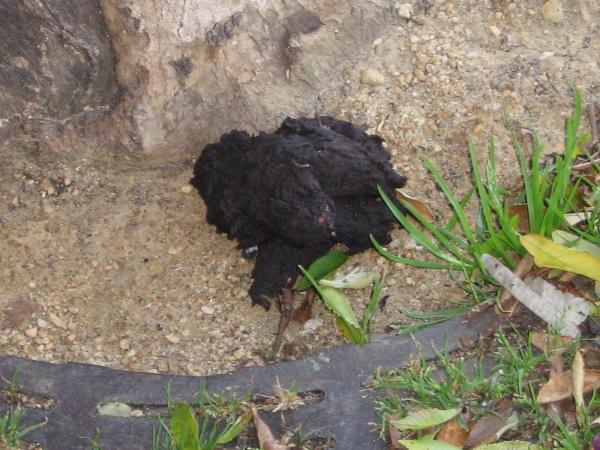
Types of dog poop: worms
Did you know dog worms look like rice? Therefore, if you notice white spots in your dog’s feces it is possible that there are worms or maggots in your dog’s poop. Internal parasites are often eliminated through bowel movements, at which time we can detect them. It it also possible to sometimes see the parasites present on your dog’s anus. If you think your dog has worms, we recommend taking a sample of your dog’s poop to the veterinarian for a proper diagnosis.
If you think that your dog may be suffering from an internal worm infestation, make sure to take your dog to the veterinarian to get it dewormed. Parasites feed on key nutrients in a dog’s body and can cause a dangerous decrease in your dog’s immune defenses. For this reason, you should meticulously follow your dog’s deworming schedule. For more, you may be interested in our article about deworming dogs: prevention and treating parasites.

Dog poop: Giardia in dogs
Giardia is a protozoan that infests a dog’s digestive tract resulting in extreme diarrhea in dogs. It is important to note that Giardasi in dogs does not include the presence of visible parasites in the feces. Does your dog have diarrhea? If so, you should go to a veterinarian who can analyze the stool accordingly with the help of a microscope.
Giardia dog poop may vary, appearing completely normal or a little watery. Giardia symptoms include:
- Weight-loss
- Loss of appetite
- Vomiting
- Soft diarrhea containing: mucus, bad smell, greasy texture
If you suspect your dog has Giardia, we recommend reading our article where we discuss symptoms and treatment of Giardia in dogs.
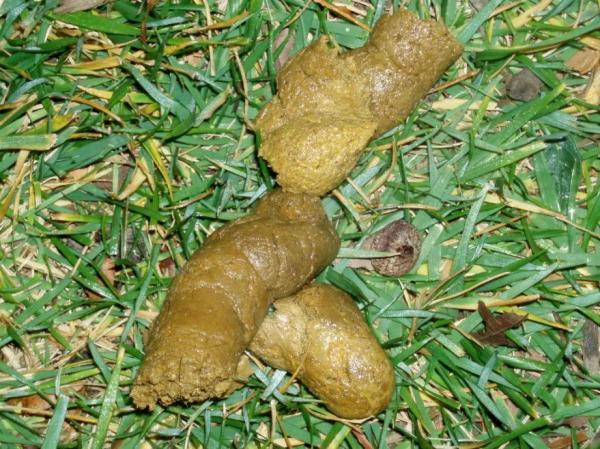
Green dog poop
Green stools in dogs can also indicate the presence of parasites, such as giardia. Green dog poop can also indicate that a dog has ingested too much grass or that your dog may be suffering from allergic reaction to something ingested.
If your dog poops green on several different occasions, it’s best to consult a veterinarian who can analyze the stool correctly. If your dog is pooping green and vomiting, it could be a sign of dog poisoning and in this case you should go to a veterinarian IMMEDIATELY. For more, read about dog poisoning here.
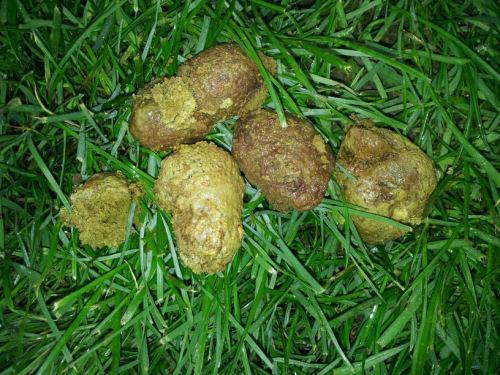
Yellow mucus in dog stool
If you have noticed mustard yellow dog poop or yellow discharge in dog stool, take note! Transparent mucus, yellow mucus or a texture similar to gelatin in dog feces can be an indication of several different health problems. Some yellow stool in dogs causes include:
- Food Allergy/intolerance
- Parasites
- Irritable bowel syndrome
- Small intestine bacterial overgrowth in dogs (SIBO).
Does your dog’s poop look like yellow jelly poop? For more, read dog food allergies and intolerance.
White dog poop
White stools in dogs may indicate that a dog possibly been fed a diet too high in calcium (NOT recommended). This situation is frequent in dogs which follow the BARF diet, a diet that includes raw meaty bones. Too much calcium in your dog’s diet can also lead to constipation and should therefore be avoided.
White poop in dogs is also common with dogs that suffer from anxiety, stress and behavioral problems that lead to eating stones and other objects. These such problems can also lead to a dog developing pica syndrome, when a dog will eat anything, even if it isn’t considered food. Is your dog stressed? Find out by reading our article compulsive behavior in dogs.
Paying attention to behavioral changes in dogs is essential! In addition, if you notice any such strange behavior in your dog, we recommend consulting a veterinarian in order to rule out the possibility of pathology.
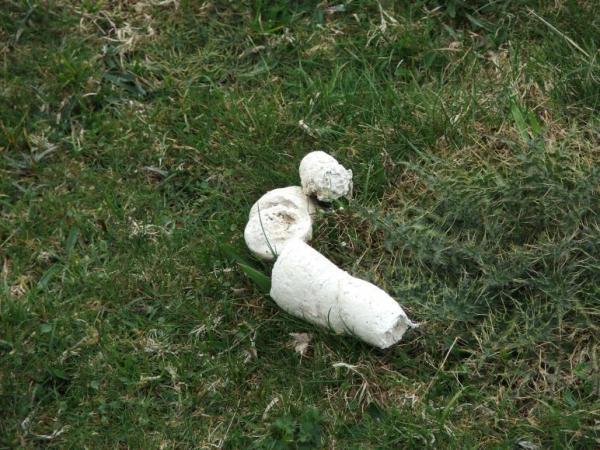
Grey dog poop
Gray dog poops are also a cause for concern. Grey poop in dogs may indicate gallbladder, pancreas or liver problems. The most frequent health problems related to gray stools include:
- Canine exocrine pancreatic insufficiency: occurs when the pancreas does not produce enough digestive enzymes and, because of this, te stools do not appear as brown as they should.
- Liver disease: liver disease in dogs may also include symptoms such as, increased thirst, increase in need to pee, loss of appetite and vomiting or diarrhea. Read liver failure in dogs for more.
- Obstruction of the common bile duct: if there is an obstruction of a dog’s bile duct, the enzymes cannot pass from the gallbladder to the intestines and, therefore, the dog's stools will appear gray.
Dog pooping blood
There are a lot of reasons that may explain why your dog is pooping blood. Nonetheless, blood in dog poop is NOT NORMAL and cannot be ignored! If you notice blood in your dog’s poop, make sure to go to the veterinarian immediately.
Possible causes of blood in the dog's feces include:
- Parvovirus
- Parasites
- Foreign body present in the intestines
- Cancer in dogs
- Anus Injury
Other reasons that can explain blood in dog stool include, ingested soil, a torn rectum or something more severe, like cancer. If you notice blood in your dog’s poop, stay calm and contact your veterinarian. If possible, you should also try and take a stool sample to your veterinarian so that it can be analyzed correctly. If the hemorrhage is abundant, don’t wait and go to directly to the emergency room. The sooner the pathology is diagnosed, the better the prognosis will be. For more, read blood in dog feces- causes and diseases.

This article is purely informative. AnimalWised does not have the authority to prescribe any veterinary treatment or create a diagnosis. We invite you to take your pet to the veterinarian if they are suffering from any condition or pain.
If you want to read similar articles to Types Of Dog Poop and What They Mean, we recommend you visit our Prevention category.





